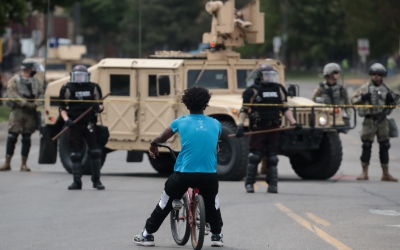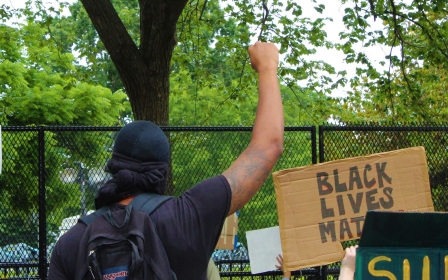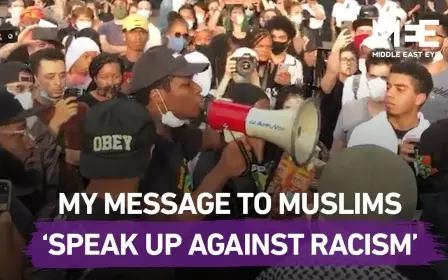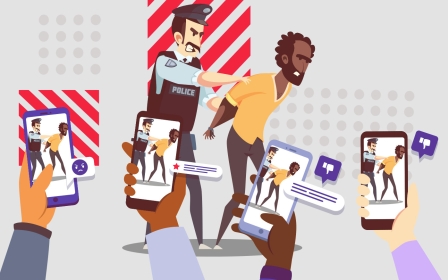Texas mosque faces backlash for hosting local police chief at anti-racism event
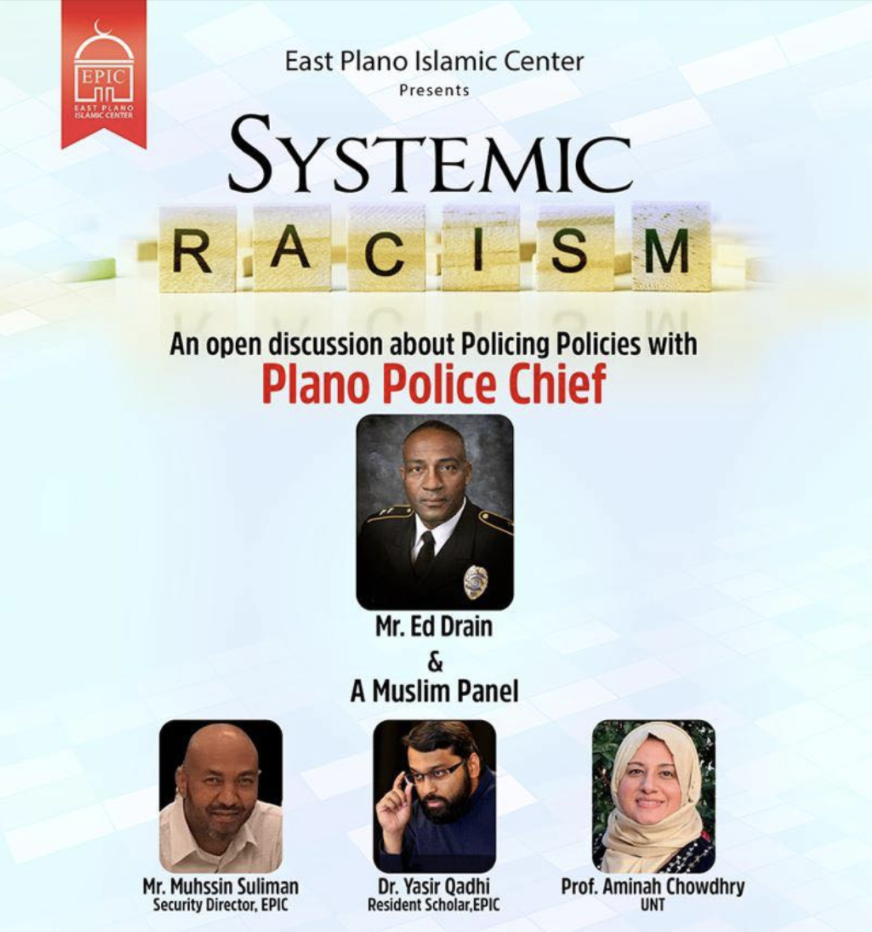
A mosque in northern Texas is facing a backlash from the local Muslim community after it invited a local police chief as a speaker for an event on systemic racism, rejecting repeated requests for Black rights scholars and activists to be invited.
East Plano Islamic Center Masjid (EPIC) held its webinar on Tuesday with officer Ed Drain, who in January became Plano's first Black police chief. Drain spoke for most of the 60-minute event, explaining problems and possible solutions to racism, and decried the recent killing of George Floyd, which has triggered nationwide protests against racism and police brutality.
'There are experiences that most folks in suburban mosques do not understand, and cannot relate to, and just because you bring a Black cop to talk about it doesn't mean you have the right understanding about it'
- Dr Khalil Abdur-Rashid, Harvard University's Muslim chaplain
Prior to the event, activists had launched a petition calling for the event to be cancelled, garnering more than 800 signatures.
"To have a representative of the very system of oppression and brutality millions are protesting in this watershed moment in history is completely tone deaf and harmful to progress against dismantling these systems of oppression," the petition's organisers wrote.
"This is an affront to the black community, their allies, and justice seekers everywhere and we call on EPIC to cancel this event immediately."
New MEE newsletter: Jerusalem Dispatch
Sign up to get the latest insights and analysis on Israel-Palestine, alongside Turkey Unpacked and other MEE newsletters
Anti-racism activists also later denounced the mosque for pre-recording the event, instead of hosting it live, and for switching off comments.
"EPIC said let's engage in an open dialogue about systemic racism through a YouTube live with the Plano police chief and no BLM activists but also let's prerecord the event and disable the ability to comment," one user wrote on Twitter.
Not mentioning Tuesday's webinar by name, Dr Khalil Abdur-Rashid, Harvard University's Muslim chaplain, called on the greater Muslim community to listen to Black voices during discussions about racism, "not the police!".
Following the event, EPIC posted a video statement given by Imam Khalid Shahid, a Black American community leader well known among Muslims in Texas, who addressed some of the concerns of activists.
"I was asked whether it was OK for Muslims to work with the police department," Imam Shahid said. "Yes it is."
"The police department is not the enemy, the enemy is bigger than the police," he said.
"The problem is white supremacy, not the police. Is it within the police department? Yes it's in the police department, but it's within all institutions in America, it's not confined to the police department," he said.
Speaking to Middle East Eye on Wednesday, Harvard's Abdur-Rashid said he respected Shahid's point that ending white supremacy is the key to ending systemic racism, and could not support EPIC's decision to give Plano's police chief a platform.
"Yes white supremacy is the problem, but white supremacy manifests in all the different apparatuses, so yes you have to have people to speak about that if you're going to talk about racism, but as a frontline major American mosque, the first person you invite cannot be and should not be a police officer when having this discussion," Abdur-Rashid said.
He also suggested that EPIC and many other Muslim institutions - especially those in suburban areas - have their own internal issues of racism that need to be addressed long before those institutions attempt to tackle issues in the wider community.
"We have to talk about what's going on in the American Muslim community that makes some of us and certain institutions unqualified to lead on this issue [of racism]," he said
"We have a problem where so many of our folks in different communities and different mosques want to be superstars and want to do everything. Everybody cannot do everything, you have to have the right voices to go out and advocate.
"There are experiences that most folks in suburban mosques do not understand, and cannot relate to, and just because you bring a Black cop to talk about it doesn't mean you have the right understanding about it.
"What I would hope is that large mosques that have communal clout do their part in addressing systemic racial disparities... in the city and in their own mosque and communities and let that be the beginning, because after that there'll be gender issues, after that there will be other kinds of issues that they will have to address."
Middle East Eye delivers independent and unrivalled coverage and analysis of the Middle East, North Africa and beyond. To learn more about republishing this content and the associated fees, please fill out this form. More about MEE can be found here.


